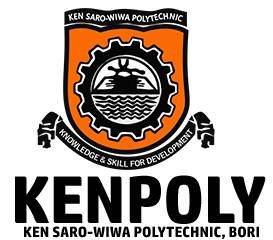Easiest And Hardest Engineering Courses To Study In Nigeria
Easiest And Hardest Engineering Courses To Study In Nigeria
Contents
Choosing an engineering course in Nigeria is a momentous decision, shaping not only your academic years but also your future career.
While all engineering disciplines demand dedication and hard work, some tend to present greater challenges than others.
Understanding the relative difficulty of different courses can help you make an informed and confident choice aligned with your strengths and interests.
This article unveil the difficulties of studying engineering in Nigeria, highlighting both the easiest and most demanding courses offered.
We will explore factors that contribute to the difficulty level, providing you with a valuable framework for navigating your decision-making process.
Easiest Engineering Courses in Nigeria:
-
Petroleum Engineering: While often perceived as complex, petroleum engineering in Nigeria can be surprisingly manageable for students with a strong foundation in mathematics and physics.
The curriculum emphasizes reservoir engineering, drilling technology, and production practices, often taught with a practical focus due to the industry’s prominence in the country.
-
Chemical Engineering: Sharing some overlap with petroleum engineering in terms of core subjects, chemical engineering can be considered relatively approachable for students with a good grasp of chemistry and mathematics.
The focus on process design, thermodynamics, and reaction engineering is often grounded in real-world applications, making the learning process engaging.
-
Environmental Engineering: Combining elements of civil and chemical engineering, environmental engineering presents a manageable workload for students with an interest in sustainability and resource management.
The curriculum delves into water treatment, pollution control, and waste management, offering a blend of theoretical and practical knowledge that readily translates to professional settings.
Hardest Engineering Courses in Nigeria:
-
Aerospace Engineering: Demanding a deep understanding of physics, mathematics, and mechanics, aerospace engineering is one of the most challenging disciplines in Nigeria.
The intricate nature of aircraft design, propulsion systems, and flight dynamics makes this course a rigorous pursuit for even the most dedicated students.
- Computer Engineering: Bridging the gap between hardware and software, computer engineering necessitates proficiency in both electrical engineering and computer science.
The complex interplay of circuits, programming languages, and algorithms demands strong analytical and problem-solving skills, making this course a significant intellectual challenge.
-
Mechatronics Engineering: Blending elements of mechanical, electrical, and computer engineering, mechatronics combines the complexities of each discipline into a demanding academic journey. Students must master robotics,control systems, and automation principles, requiring a diverse skillset and a robust work ethic to excel.
FAQs
What are the easiest engineering courses to study in Nigeria?
While difficulty perception can vary, courses like Petroleum Engineering, Chemical Engineering, and Environmental Engineering are often considered manageable due to their practical focus and manageable workloads.
What are the hardest engineering courses to study in Nigeria?
Courses like Aerospace Engineering, Computer Engineering, and Mechatronics Engineering demand expertise across multiple disciplines and present significant intellectual challenges due to their complex subject matter.
Does the difficulty of an engineering course affect job prospects in Nigeria?
While certain courses may offer specialized skillsets, ultimately, strong academic performance, relevant internships, and practical experience hold more weight in securing engineering jobs in Nigeria. Choose a course you find engaging and excel in, as these factors will contribute significantly to your career success.








